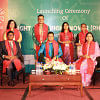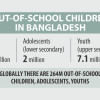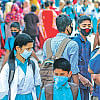Sexual Health: Discuss with adolescent children
Parents should openly discuss sexual and reproductive health with their adolescent children breaking the taboo and social stigma, speakers said at a roundtable yesterday.
Sexual and reproductive health is so important that future health of all individual depends on how they practise it during adolescence, they said, urging the teachers to provide adequate lessons on the topic at classrooms.
Bangla daily Prothom Alo in association with the United Nations Population Fund (UNFPA) organised the roundtable titled “Reproductive health of urban adolescents” at the newspaper's office in the capital.
The speakers suggested that the government and non-government organisations should put emphasis on those adolescents living in slum areas, dropped out of schools and involved in work to increase reproductive health coverage in urban areas.
Iqbal Hossain, an education specialist of UNICEF, said many adolescents in the country do not have enough knowledge about sexual and reproductive health. Even, majority of those who have some knowledge do not know the correct information.
“So, we should give them the correct information at first and then guide them properly. Then, we will have to come up with physical facilities like hygienic toilets and sanitary napkins for them,” he observed.
Noted actress Sabnam Faria said, “When my menstruation started for the first time, my parents didn't discuss it although they are well-educated and my father is a doctor. This happened because our society doesn't support it.”
Parents should avoid such practices and people of the society should change their mindset considering discussion on reproductive health as a taboo, she added.
Kanica Fardosh, an adolescent health expert of Save the Children, said children in slum areas and those who dropped out of school lag behind others in getting reproductive health services and advices and should get more emphasis.
MA Mannan, state minister for finance and planning, Prof Abul Kalam Azad, director general of the Directorate General of Health Services (DGHS), and Abdul Quayum, associate editor of Prothom Alo, among others, spoke at the discussion.

 For all latest news, follow The Daily Star's Google News channel.
For all latest news, follow The Daily Star's Google News channel. 







Comments